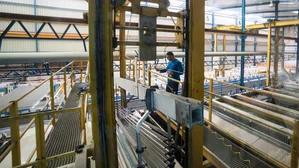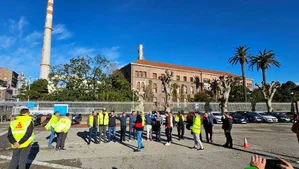Spain Sees Significant Employment Growth and New Migration Initiatives

In a year marked by notable economic and social developments, Spain has witnessed a historic peak in employment and a series of innovative migration policies aimed at integrating both Spanish expats and foreign workers.
Record Employment in 2024
Spain closed 2024 with a remarkable employment record, adding 501,952 new jobs and reducing unemployment by 5.4% to its lowest level since December 2007. This growth is largely attributed to the booming tourism sector, which saw 94 million visitors in 2024, a 10% increase from the previous year. The tourism industry, along with seasonal agricultural work, has been a significant driver of job creation, particularly during the summer months[3].
State Plan for the Voluntary Return of Spaniards
Minister of Inclusion, Social Security and Migration, Elma Saiz, has announced a State Plan for the Voluntary Return of Spaniards residing abroad. This initiative aims to facilitate the return of nearly three million Spaniards currently registered in the Register of Spaniards Residing Abroad, primarily in countries such as Argentina, France, the United States, the United Kingdom, and Germany. Saiz emphasized that many of these individuals left Spain due to unfavorable economic conditions but noted that the current labor market is much improved, making it an opportune time for their return[1][3].
The plan includes the establishment of Return Offices to provide advice and assistance to those wishing to return to Spain, highlighting the government's commitment to making the return process as smooth as possible.
Reforms in Immigration Regulations
In addition to the return plan, Minister Saiz has overseen significant reforms to the Spanish Immigration Regulations. Published in the Official State Gazette in November 2024, these changes aim to broaden and simplify legal migration channels. The new regulations reduce deadlines, eliminate duplicities, and provide more guarantees and legal clarity for foreigners seeking to integrate into Spanish society through employment, training, and family reunification[2].
Key changes include the simplification of visa procedures and the introduction of provisional permits that are valid for an initial period of one year and renewable for another four years. This will facilitate family reunification and streamline the process for gaining long-term authorization.
Circular Migration and International Cooperation
Spain is also enhancing its circular migration programs, particularly through the "Wafira" program, a pilot project aimed at developing female entrepreneurship among seasonal migrant workers from Morocco. This program has been highly successful, with 209 Moroccan women participating and reporting significant improvements in their professional and personal skills. Minister Saiz has highlighted the success of this program as an example of how circular migration can act as a lever for economic growth and transformation for both the participants and their communities[4][5].
The "GECCO Order" for 2025, approved by the Ministry of Inclusion, Social Security, and Migration, further solidifies Spain's commitment to orderly, regular, and safe migration. This order includes measures for the temporary employment of foreign workers, particularly in seasonal and agricultural sectors, and provides for the collective management of residence and work permits. The program is set to expand to additional African countries, including Mauritania, Gambia, and Senegal, in 2025[5].
Integration and Coexistence Plan
To further integrate migrants into Spanish society, the government is preparing an Intercultural Integration and Coexistence Plan, expected to be ready in the spring of 2025. This plan will gather contributions from autonomous communities, other ministries, and social entities to ensure a comprehensive approach to migrant integration. Minister Saiz emphasized that migration is both a cultural and economic asset that needs to be valued and cared for[1].
In summary, Spain's recent initiatives reflect a multifaceted approach to employment, migration, and social integration. With a strong focus on returning Spanish expats, simplifying immigration procedures, and promoting circular migration, the country is poised to continue its economic growth while fostering a more inclusive and diverse society.
Related Stories

Over 2,600 Aspirants Participate in Initial Public Employment Exams for 2023-2024 in Suffolk and Monroe Counties
Over 2,600 candidates vie for public sector roles in Suffolk and Monroe counties, marking a keen interest in civil service careers for 2023-2024.

Cantabria Leads in Creation of Indefinite Employment Positions Following Labor Reform
Cantabria leads Spain in creating stable jobs post-labor reform, setting a positive precedent for national employment stability and growth.

New Mediation Called in Solvay Logistics Strike in Spain
In a bid to resolve the ongoing strike at Solvay's Spanish logistics division, Orecla announces a new mediation session, aiming to reconcile worker demands with company operations.

Significant Changes in Labor Laws and Housing Regulations in Spain: What Expats Need to Know
Spain introduces major labor and housing law reforms, impacting expats with changes to temporary contracts, eviction procedures, and climate-related labor measures.

Spain Set to Implement Shorter Work Week Starting 2025
Spain to reduce its work week to 37.5 hours by 2025, aiming to improve work-life balance for 12 million employees, following an agreement led by Labour Minister Yolanda Díaz.